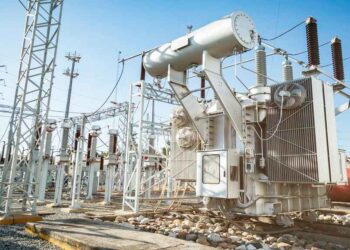German lawmakers backed an extensive revision of the country’s EEG clean-energy law to curb subsidies and slow gains in power prices that are the second-costliest in the European Union.
The legislation, which introduces limits on how much onshore wind and biomass capacity qualifies for the full subsidies and lowers existing targets for solar and offshore wind, pulls energy policy “out of the quicksand,” Economy Minister Sigmar Gabriel told reporters after the vote in the lower house. “We have to expand renewables with more planning security.”
Chancellor Angela Merkel is seeking to curb subsidies in Europe’s biggest renewables market even as she pushes through an “energy switch” from nuclear power. Her plan would see all the country’s reactors shut by 2022 and the share of renewables rise to at least 80 percent by 2050, from about a quarter now. “Excessive” power-price gains are making the expansion of renewables unsustainable, Gabriel said earlier today.
The opposition Green Party and Die Linke voted against the bill, saying it would delay solar, wind and biomass projects and give excessive rebates to industrial companies. Germany retained most of the power-fee rebates to companies in industries such as steel, aluminum and chemicals, even after the EU was investigating whether the exemptions violate competition rules.
‘Choke’ Expansion
“There will be no price break for consumers, but there will be a price break for the industry,” Caren Lay, a lawmaker for Die Linke, said today in parliament before the vote. A plan to tax the self-consumption of solar power from plants larger than 10 kilowatts will “further choke” expansion of the industry, the BSW-Solar lobby said today.
Governing coalition lawmakers say the revision is needed and comes at the right time.
“We need more cost-efficiency when it comes to expanding renewables,” said Hubertus Heil of the Social Democrats, who are Merkel’s junior coalition partners. “If you want the energy switch, you must be ready to accept changes now.”
Owners of clean energy plants that consume their own power will have to pay 30 percent of the EEG-Umlage, a fee to finance the subsidies, starting next year. That share will rise to 35 percent in 2016 and 40 percent in 2017.
Germany seeks to add 2.5 gigawatts of solar panels, 2.5 gigawatts of onshore wind turbines and 100 megawatts of biomass energy units a year. It targets 6.5 gigawatts of offshore wind capacity by 2020.
The legislation is to be debated July 11 in the upper house by state leaders, who can at most delay it by calling for an arbitration panel. Gabriel told reporters he doesn’t expect such a move.
The government is trying to have the bill become law on Aug. 1, giving German companies time to apply for rebates, despite last-minute changes demanded by the European Commission.
Germany has the second-highest electricity prices for private households in the 28-nation EU after Denmark, according to Eurostat.






































